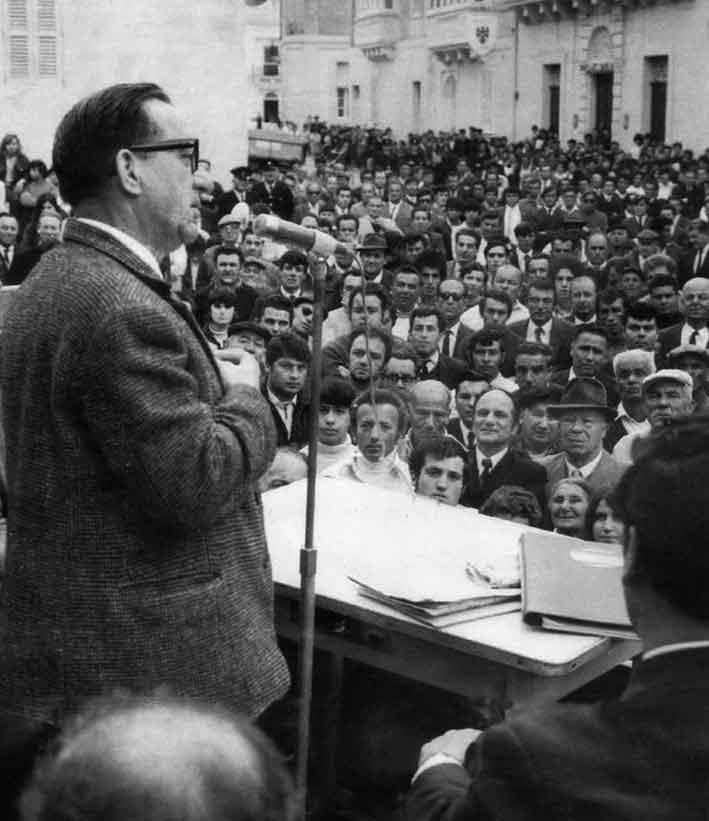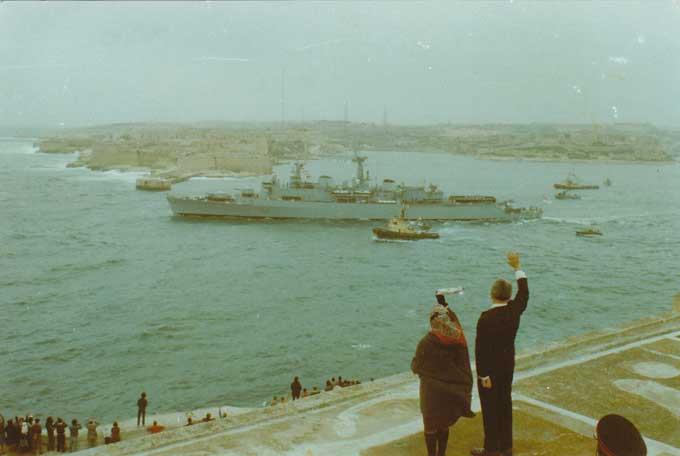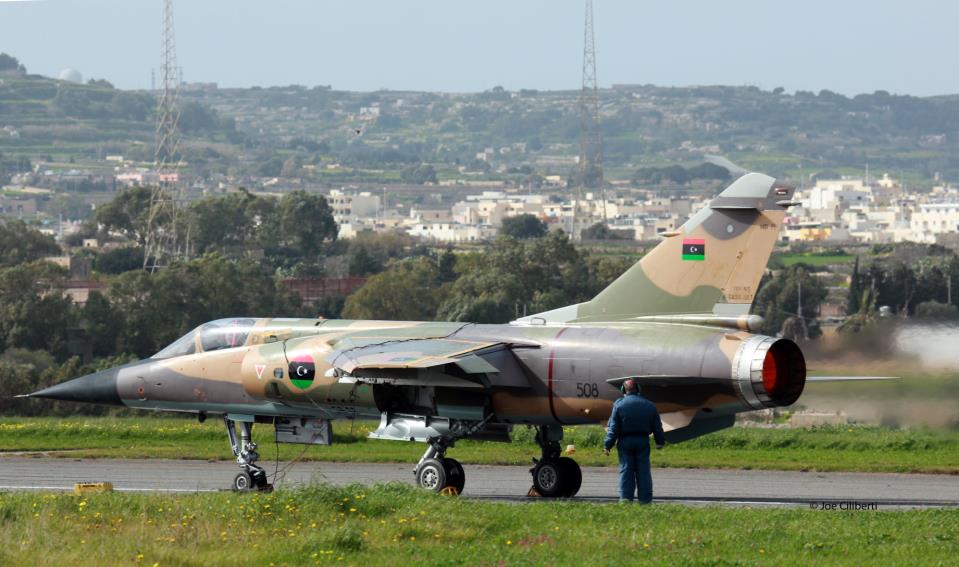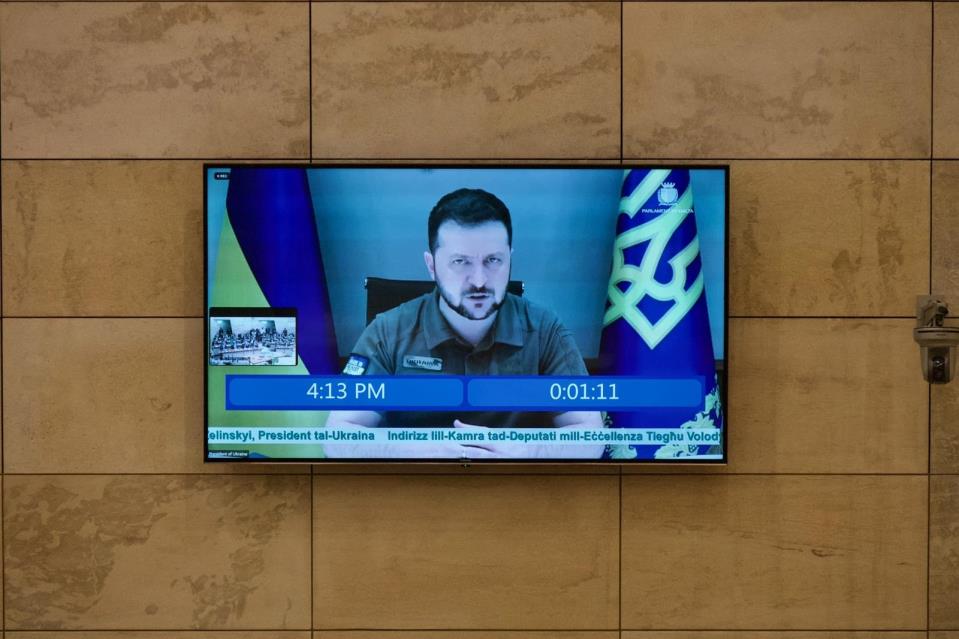Malta’s foreign policy in the modern era has come to be defined by one main pillar: neutrality.
It’s a subject which crops up in the public discourse every time an international conflict which may have some form of bearing on Malta occurs: Russia’s invasion of Ukraine is no different.
In the week that Ukrainian President Volodymyr Zelenskyy addressed Malta’s Parliament – something which, at least on the social media, prompted some to say that it was an impingement of Malta’s constitutional neutrality, The Malta Independent on Sunday delves deep into the history behind Malta’s foreign policy pillar and into times when it has come into question before.
Malta and neutrality: The historical context
Whether we like it or not, war is an intrinsic part of Maltese history. For centuries, Malta was traded between or fought over by multiple foreign powers ranging from the Arabs to the Knights of St John and almost everyone else in between.
It was only recently that Malta’s neutrality was imposed within the Constitution – something fronted by Labour Prime Minister Dom Mintoff throughout the 1970s. However, neutrality was not always on the table – even when Mintoff was concerned.
As Malta entered the 1950s still reeling from the economic effects of the Second World War, Mintoff’s solution to save the country from economic ruin was by pursuing integration with Great Britain. The line of thinking was that integration would bring Malta’s living standards up to those in the UK, even if it came at the cost of Malta’s sovereignty.
Mintoff’s integration idea would receive support in a referendum (even though the PN and the Church pushed for a no vote or an abstention), but would subsequently collapse after the British proposed defence cuts which would have left the future of thousands of Maltese workers under question. When the British refused to guarantee alternative jobs for anyone who would lose their employment due to the cuts, integration was off the table.

The truth of the matter however is that Mintoff had already started to veer towards a policy ideal known as non-alignment. In 1956, just a year after the Bandung Conference, which was a key step towards the creation of the Non-Aligned Movement, Mintoff invited one of the movement’s main proponents – Egyptian President Gamal Abdel Nasser to Malta. This was interpreted, particularly by the British, as being counter to the pro-British foreign policy that Mintoff was meant to be following as a proponent for integration with the UK.
A PN government after self-government was restored in 1962 led Malta to Independence two years later, however, the British still maintained its military bases in the country – even if they now had to pay for them.
It was a state of affairs which was not to Mintoff’s liking: he firmly believed that Malta’s independence was insignificant on the basis that an independent country shouldn’t be reliant on someone else, as Malta – he felt – was on the British.
Mintoff was back in power in 1971 and implementing his idea of non-alignment was one of his first priorities.
Within 24 hours of coming to power, Mintoff expelled Admiral Gino Birindelli – the chief of the NATO Mediterranean Command Fleet – from the country, and then set about renegotiating the renewal of Malta’s defence agreement with Great Britain.
Here, his objectives were simple: get more money from the British and establish a date by which point the British had to pack their suitcases and leave.
On their part, Britain wanted to keep their facilities in Malta particularly as it was a foothold for NATO in the Cold War.
When negotiations seemed to be collapsing between Malta and the UK in 1971, Mintoff struck a deal with Libyan strongman Muammar Gaddafi to ensure that if no defence agreement renewal was forthcoming from the British, Libya would come to Malta’s aid instead.
The fear of losing the NATO foothold led to an agreement eventually being reached: Britain and NATO would pay £14m per year in rent and Malta would not be used as a military base by either the USSR or any of the Warsaw Pact countries. Furthermore, the British would depart Malta on 31 March 1979 – something which did indeed come to pass.

In the meantime, however, Mintoff set about putting his non-alignment policy into practice. He steered Malta away from the West, visiting a number of other countries – such as China, Poland, Yugoslavia and Romania – to establish diplomatic relations and even, in China’s case, negotiate financial aid for Malta’s economy.
Malta officially joined the Non-Aligned Movement in 1973 and Mintoff continued to attempt to bridge the gap between Europe and Arab states. The Labour Party’s manifesto in 1976 proposed that Malta would enter into a four-nation guarantee for Malta’s security neutrality – these nations being Italy, France, Libya and Algeria.
However, negotiations soon collapsed as France pulled out of the proposition. Libya subsequently proposed its own defence agreement with Malta, which Mintoff did not accept – once again as he felt it would compromise Malta’s neutrality.
An issue over oil exploration in the continental shelf between Malta and Libya led to a rift between the two countries in 1980, which left only Italy willing to act as a guarantor for Malta’s neutrality, with an agreement being signed in 1981.
Furthermore, the USSR also issued a memorandum recognizing Malta’s neutrality in 1981.
The final step to the puzzle was actually implementing neutrality into Malta’s Constitution. This became part of a political ball-game in the local political scene throughout the 1980s.
The PL had been re-elected to government in 1981, but only by winning the most parliamentary seats and not the absolute majority of votes cast. The PN, by now led by Eddie Fenech Adami, did not accept the result and embarked on a campaign of civil disobedience to force new elections.
Negotiations between the two parties led to a deal being struck in 1986: Malta’s electoral laws would be changed to ensure that the party which wins the absolute majority of votes would govern but only if the PN would back changes which would entrench Malta’s neutrality in the Constitution.
That agreement came to pass in January 1987: Malta’s Constitution was changed to include the country’s neutrality and Malta’s electoral laws were changed in order to avoid a repeat of the 1981 elections.
Incidentally, the resultant change in these laws meant that the PN were granted an extra four parliamentary seats following the 1987 elections, and Eddie Fenech Adami became Prime Minister.
Malta and neutrality: How neutral is neutral?
Malta’s Constitution defines the country’s neutrality as follows: "Malta is a neutral state actively pursuing peace, security and social progress among all nations by adhering to a policy of non-alignment and refusing to participate in any military alliance."
There have since been a fair few situations where Malta’s neutrality, and how far it extends and remains an actual factor in the country’s foreign policy, has come under discussion.
The most significant of those was, of course, Malta’s accession to the European Union in 2004. Here, the PN – the main proponents behind EU accession – argued that the union isn’t a military alliance, as it continued to push the country politically westwards after winning the election in 1987.
Part of Malta’s accession treaty is dedicated to the EU’s Common Foreign and Security Policy, where it was ultimately affirmed that Malta’s neutrality would not be prejudiced.
Despite this, as seen when France invoked the EU’s mutual defence clause in 2015 in response to the Paris terror attacks, the government – then led by Joseph Muscat – said that Malta would offer help if it was asked for, but only in line with the Maltese Constitution and other EU treaties.
Professor Roderick Pace from the Institute for European Studies at the University of Malta explained the implications of this in an essay collection published last year: “As indicated by its reaction to France’s invocation of Article 42.7 in 2015, the Maltese government takes a pragmatic approach to the article and does not consider itself to have joined a military alliance or a defence union.”
There have been other issues in the past.

Foremost among those was Malta’s response to the Libyan Revolution in 2011.
Here, supporters of Malta’s neutrality alleged that the government – then led by Lawrence Gonzi – had breached the country’s Constitution by allowing foreign forces involved in the military intervention in Libya to pass through Maltese airspace during operations.
The landing of two Mirage fighter jets by Libyan defectors posed another issue for the government: they subsequently denied an official Libyan request for the return of the “stolen” aircraft, opening up the possibility (which was admittedly unlikely) of retaliatory action because Malta had “taken sides” in the conflict.
Yet, Malta’s handling of the Libyan revolution is looked back upon now, just over a decade ago, with a general sense of praise.
Fast forward a touch to 2016, when Malta refused to refuel Russian warships which were en-route to Syria – which at the time was at the throes of a civil war, believing that they would be enabling atrocities in the Middle Eastern country if they were to allow the warships in.
That decision led to accusations from Russia that Malta had “fallen victim to the West’s information war”.
However, it hasn’t been infrequent for warships – of both Russia and the United States – to visit and dock in Malta. Prior to the 2016 issue, Russian warships visited Malta in 2014 and 2015 – even after Russia had invaded and occupied Crimea.
US warships meanwhile have also docked in Malta without issue – the most recent being the USS Ross just last month.
Malta and neutrality: Neutrality and sanctions
The issue at hand today is centred around Russia’s invasion of Ukraine. Malta has – like the rest of the European Union and several other major economic players – implemented various packages of economic sanctions against Russia in response for the war that they have decided to wage on Ukraine.
This is not the first time that Malta has introduced economic sanctions: in the case of the Libyan revolution, Malta froze over €200m worth of Libyan assets based in the country. The process for the release of those assets only started last year – a decade since the revolution.
What is perhaps interesting to consider in the Russia-Ukraine case is that both sides of the notorious local political divide are united in the sense that Russia needs to be sanctioned – even if the argument can be made that introducing economic sanctions against any country is not exactly the most neutral thing that one can do.
If anything, there has been political pressure from the Opposition for Malta to issue even more sanctions against Russia, rather than pressure related to whether such action impinges on Malta’s Constitution.

That latter belief has been seen more in public discourse than political discourse. This was evident – at least on social media – after Ukrainian President Zelenskyy addressed Malta’s Parliament last Tuesday.
The concept of neutrality is one which still welcomes majority support from the public: a survey carried out earlier this year – a month before the war in Ukraine erupted – found that 63% of Maltese strongly support Malta’s neutrality.
However, while the political class will tell you that they support Malta’s neutrality too – it appears that the definition of what constitutes neutrality is exclusively limited to anything military. That’s a line of thinking which may have held some water in the 1980s when the Cold War was still ongoing, but it holds very little nowadays when the global economy has become so intertwined.
What’s certain is that the Russia-Ukraine war is the latest international event to show that things in the real world are nowhere near as simple as they are on paper – even if that paper happens to be the Constitution.